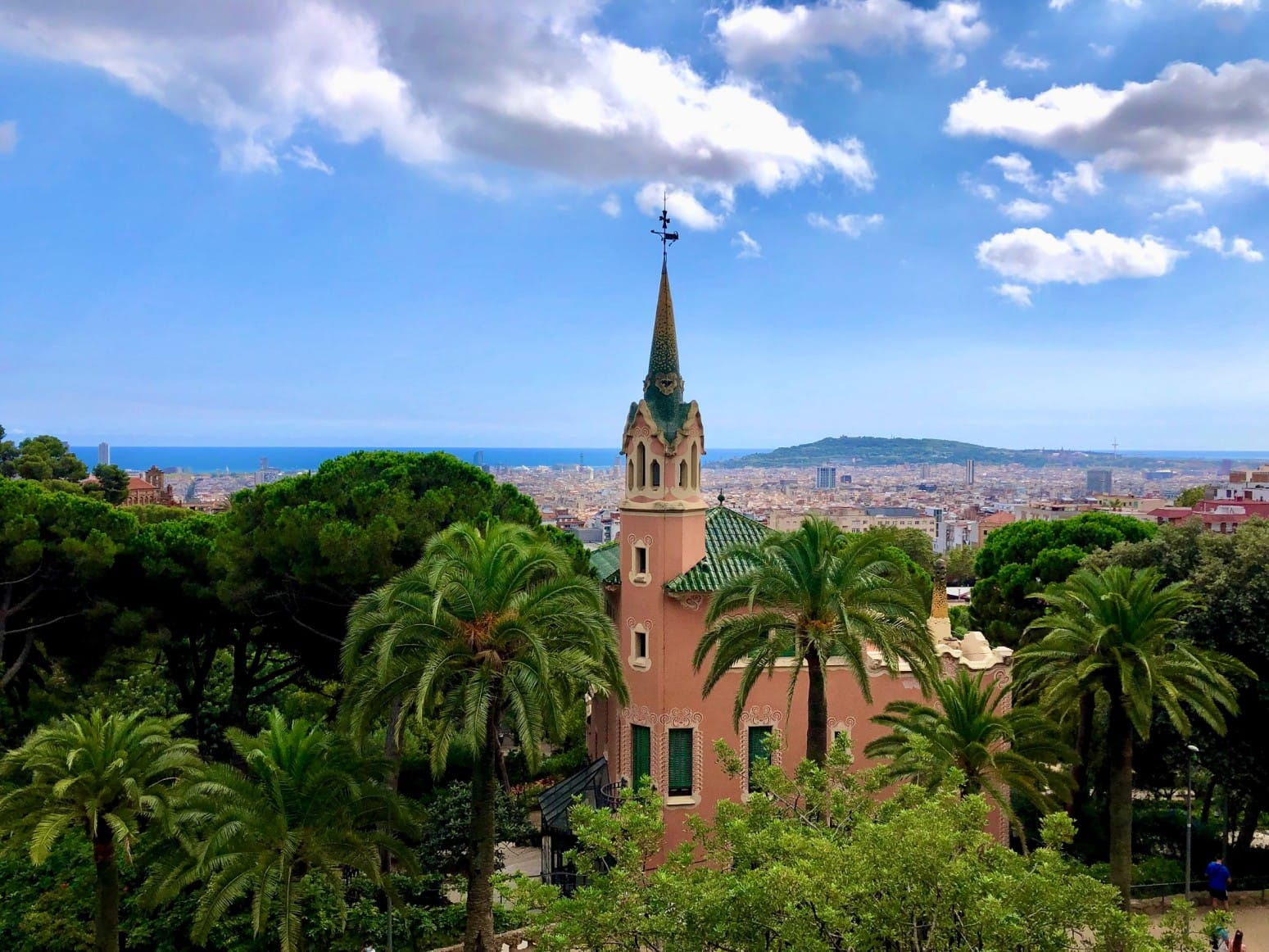🇪🇸 How to Apply for the Spain Digital Nomad Visa

Spain is a country where life moves at a slower pace. Home to renowned siestas, colourful fiestas, and passionate flamenco dancing, it's no surprise that Spain is one of the world's most beloved travel destinations.
Since January 2023, Spain introduced its own digital nomad visa as part of the Startup Act. This initiative aims to encourage entrepreneurship and foreign investment.
With this visa, you can enjoy hassle-free travel to 26 other Schengen countries.
In this article, we’ll highlight the four most important steps you need to take when applying for the Spain Digital Nomad Visa.
Before you depart, make sure you're covered...

What is a Digital Nomad Visa
A digital nomad visa is a permit crafted specifically for individuals who work entirely online, allowing them to reside in any location they choose.
Digital nomads are free to wander the globe, continuing their professions from any corner of the world - all thanks to laptops and mobile devices.
This type of visa is becoming increasingly popular as technology offers more remote job opportunities, and people look to explore the world while still having a steady source of income.

Requirements for the Spain Digital Nomad Visa
📄 Valid Travel Document
The passport must have a minimum validity period of 1 year and contain two blank pages.
💶 Proof of Remote Income
You must be able to prove sufficient income from either:
- Valid working contract with a foreign company
- Owning a business with clients outside the country
- Becoming an independent freelancer and earning an income through providing services to international customers.
🚫 You are not a European Union or European Economic Area citizen
Only third-country nationals may apply.
💰 Meet the Minimum Monthly Income
Financial means must be at least 200% of the monthly Spanish national minimum wage. This is approximately €2,416 ($2618) per month or €29,012 ($31444) per year.
🏴☠️ Clean Criminal Record
You must provide a clear criminal record from your country of residence.
🚑 Medical Insurance
A valid medical insurance policy that provides coverage during your stay.
5 Most Important Steps when Applying for the Spain Digital Nomad Visa
💥 Step 1: Gather all the required documents
Before you embark on your application journey, all necessary paperwork and documents must be prepared.
❗️ Required Documents
- A completed and signed national visa application form
- A Valid Passport with one year validity and two blank pages
- One Passport-Sized Colour Photograph
- Certificate of criminal record translated and stamped with an apostille
- Proof of Income with Certified Bank Statements of the past three months
- Certification of working for at least three months (before the visa application) for a foreign Company.
- If the applicant is self-employed, please provide details regarding the contract length and the terms and conditions for remote work in Spain.
- Proof that your company has been active for at least one year.
- Application Fee of around €80,- ($87)
- Proof of qualifications such as a university degree, professional certificate, or evidence of at least three years of experience
Additional documents for family members (if applicable)
- International passport (including blank pages).
- Marriage Certificate – in the case of a spouse accompanying.
- De Facto Partnership – Unmarried couples who have been in a relationship for two or more years must present sufficient evidence of this connection, such as utility bills, bank statements, lease agreements, dated photographs, and flight tickets.
- Birth Certificate – in the case of children accompanying.
✔️ Step 2: Schedule an appointment and pay the visa fee
To apply for the Spanish Digital Nomad Visa, you must visit your local Spanish Embassy or Consulate in person. The process of booking an appointment will vary depending on your local embassy, so it's best to check out their website for specific details.
In addition, you will need to submit the visa fee, typically through a bank transfer. The cost varies depending on the country, but it is generally around €80 and is non-refundable.
🛂 Step 3: Attend your Appointment
Attend your appointment at the Spanish embassy or consulate and bring all the required documents. During the assessment of your application, you will be asked to leave your passport at the embassy or consulate.
Copies will likely be taken or verified during your appointment, allowing you to keep your original documentation.
⏳ Step 4: Wait for Approval
After completing all the necessary documentation and submitting your application, you can expect to receive a response within 15 to 45 days. However, please note that the duration may vary depending on the location from which you are applying.
If your application is approved, you will have one month to obtain your visa from the embassy or consulate.
In the event that your application is declined, you will receive a written notification specifying the reasons for the rejection. Should you wish to provide additional documentation and appeal the decision, you will have one month to do so.
🇪🇸 Step 5: Head to Spain and apply for a NIE and NIF
Once you have received the good news, it's time to set off for Spain. Upon arrival, it is necessary to apply for a NIE (Número de Identificación de Extranjero /Foreigner Identity Number) through the local Foreigner's Office or the police. You will need the following documents for your application:
- Your passport with visa
- Three passport-sized photographs
- A completed application form
- Proof of your address in Spain
- Proof of payment of the administration fee (around €10)
In addition to NIE, applying for a Tax Identification Number (NIF) is also necessary. NIFs can be acquired at any Spanish Tax Agency office without needing an appointment or payment of any fees. The required documents for the application are as follows:
- Form 030 completed and in Spanish
- Your passport with visa
- Your tax identification number from your country of residence
- Evidence of local residency
Once you have visited the Spanish Tax Agency, you can expect to receive your NIF within five working days.
Congratulations, you have the opportunity to live and work remotely in Spain for one year! After that, you can apply for a three-year residence permit, which can be renewed for two more years. And the best part? You can apply for permanent residence once you've spent five years in Spain. How amazing is that?
Spain Digital Nomad Visa at a Glance
For those of you who like summary tables, we've put the most important information of Spain's Digital Nomad Visa below.
Income Requirement €2,416 ($2618) per month Duration of Visa One year (possible to extend up to 5 years) Cost of Visa €80 ($87) Processing Time 45 days Family Allowed on Visa Yes Ease of Applying 7 out of 10 Tax obligations Yes

💃🏻 Why Spain is a great place for Remote Workers
Spain is the perfect location for your digital nomad adventure, and here's why. Firstly, they genuinely appreciate the importance of maintaining a healthy work-life balance. Have you ever come across the Spanish saying: "En España trabajan para vivir, no viven para trabajar," which means in Spain, they work to live, not live to work. It's a mindset that prioritizes enjoying life to the fullest while pursuing professional goals.
Spain has a relatively low cost of living compared to other wealthy countries, especially in northern Europe. This means that pretty much everything, from groceries to eating out to coworking, is more affordable. Although costs are rising due to inflation, living in a big, desirable city like Barcelona or Madrid is still much more affordable than in places like London or Amsterdam.
Big cities like Madrid and Barcelona have a thriving expat community, making connecting with other like-minded people easy. But don't overlook the smaller gems like Malaga, Valencia, Sevilla, and Granada, which also have an upcoming remote work and startup scene. These cities can also provide a more authentic Spanish experience if that's what you're looking for.
Last but not least, the weather and the food are great! The summers are hot and sunny, and the winters are certainly not as cold and miserable as northern European countries. You can enjoy fresh seafood, paella and tapas after your day at work.
When will you be going?
Time to start packing!

F.A.Q
Does Spain have a digital nomad visa?
Yes, Spain recently introduced a new visa specifically for remote workers and freelancers. This visa allows individuals to live and work in Spain for up to one year, with the option to renew for another five years.
How much do you need to earn to get a digital nomad visa in Spain?
Financial means must be at least 200% of the monthly Spanish national minimum wage. This is approximately €2,416 ($2618) per month.
Do digital nomads pay tax in Spain?
Yes, but people who work remotely will receive tax breaks. For the first four years of their stay, they would only have to pay 15% rather than 24%. The minimum income requirement to qualify for this plan is €2,000 per month.
How to get a digital nomad visa in Spain?
To apply for the Spain Digital Nomad Visa, you must fulfil several requirements, including a valid passport, completed application forms, proof of remote work and income, and meet the minimum financial requirement.
How long does it take to get a digital nomad visa in Spain?
After completing all the necessary documentation and submitting your application, you can expect to receive a response within 15 to 45 days. However, please note that the duration may vary depending on the location from which you are applying.
How long can you stay in Spain with their digital nomad visa?
You have the opportunity to live and work remotely in Spain for one year. After that, you can apply for a three-year residence permit, which can be renewed for two more years. Finally, you can apply for permanent residence once you've spent five years in Spain.
What is Spain known for?
Spain is known for it's Mediterranean climate, its beautiful beaches, vibrant culture and delicious food.
